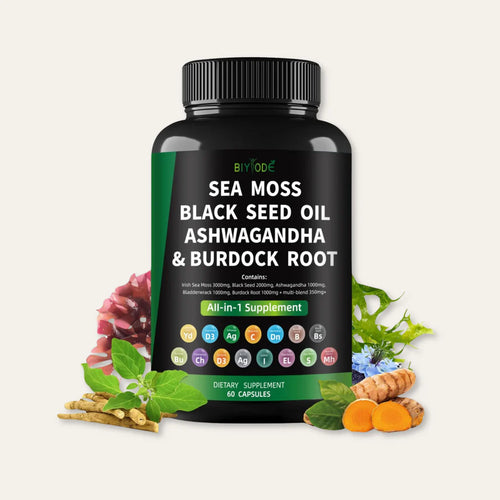Omega-3 fish oil supplements have become one of the most popular and widely recommended nutritional supplements around the world. Derived primarily from the oils of fatty fish such as salmon, mackerel, and sardines, omega-3 fish oil is rich in essential fatty acids, particularly EPA (eicosapentaenoic acid) and DHA (docosahexaenoic acid). These omega-3 fatty acids are crucial for many bodily functions but cannot be produced by the human body on its own, making dietary intake or supplementation necessary.
This article explores the many uses of omega-3 fish oil, explaining how these powerful nutrients support various aspects of health, backed by scientific evidence and expert opinions.
1. Supports Heart and Cardiovascular Health
One of the most well-known and researched uses of omega-3 fish oil is its ability to promote heart health. Omega-3 fatty acids have been shown to reduce triglyceride levels, lower blood pressure, and improve cholesterol profiles by increasing HDL (good cholesterol) and decreasing LDL (bad cholesterol). These effects help reduce the risk of cardiovascular diseases, including heart attacks and strokes.
2. Enhances Brain Function and Mental Health
The brain is composed largely of fat, and DHA is a key structural component of brain cell membranes. Omega-3 fish oil plays a vital role in maintaining brain function, supporting memory, learning, and cognitive performance. Studies suggest that omega-3 supplements may slow cognitive decline related to aging and reduce the risk of neurodegeneration diseases like Alzheimer’s.
Furthermore, omega-3 fish oil has been linked to improved mental health. It helps regulate neurotransmitters and reduces inflammation in the brain, which may help alleviate symptoms of depression, anxiety, and mood disorders.
3. Reduces Inflammation and Supports Joint Health
Chronic inflammation is a common underlying factor in many diseases, including arthritis. Omega-3 fatty acids are potent anti-inflammatory agents that help reduce joint pain, stiffness, and swelling associated with conditions like rheumatoid arthritis.
By modulating inflammatory pathways, omega-3 fish oil improves joint mobility and reduces discomfort, often leading to a decreased need for non-steroidal anti-inflammatory drugs (NSA IDs). Many people with arthritis and other inflammatory joint diseases report significant symptom relief after consistent omega-3 supplementation.
4. Promotes Eye Health
DHA is a crucial component of the retina, the light-sensitive tissue at the back of the eye responsible for vision. Omega-3 fish oil supports eye health by helping to maintain retinal structure and function.
Regular intake may help protect against age-related muscular degeneration (AMD), a leading cause of vision loss in older adults. Omega-3s also support tear production, making fish oil supplements beneficial for individuals suffering from dry eye syndrome.
5. Doctor’s Insight
Obstetrician Dr. Karen Simmons advises:
"I recommend omega-3 supplementation to all my pregnant patients. Adequate DHA intake is vital for the baby’s brain and visual development, and it may also help reduce the risk of preterm birth."
Customer Experience
Maria L., 32, shares:
During pregnancy, I took omega-3 supplements as advised. My baby was born healthy, and I felt more energetic during my pregnancy. It gave me peace of mind knowing I was supporting my baby’s development."
Note: Omega-3 fatty acids play a significant role in brain structure and function. DHA, in particular, is a major structural fat in the brain, accounting for up to 97% of the omega-3 content in the brain tissue.
6. Improves Skin Health and Appearance
Healthy skin depends on adequate hydration and reduced inflammation, both of which omega-3 fish oil supports. EPA helps regulate the skin’s oil production and maintains moisture, while both EPA and DHA improve skin barrier function, protecting against environmental damage.
Omega-3 supplementation has been shown to benefit skin conditions like eczema, psoriasis, and acne. It also promotes skin elasticity and reduces signs of premature aging, such as wrinkles and fine lines, resulting in smoother and healthier-looking skin.
7. Supports Prenatal and Infant Development
Omega-3 fish oil is particularly important during pregnancy and early childhood. DHA is essential for fetal brain and eye development, and adequate maternal intake is associated with improved cognitive and visual outcomes in infants.
Pregnant women are often advised to consume omega-3 supplements to support the healthy growth of the baby’s nervous system. Omega-3s may also reduce the risk of preterm birth and support a healthy birth weight.
8. Aids Weight Management and Metabolic Health
Emerging research suggests that omega-3 fish oil may support weight management by enhancing fat metabolism and improving insulin sensitivity. It can help reduce inflammation linked to obesity and metabolic syndrome.
Some studies suggest omega-3s may increase the body’s ability to burn fat and preserve lean muscle during weight loss. They also support liver health, reducing the risk of fatty liver disease, which is often associated with obesity and poor metabolic function.
9. Supports Bone Health
Omega-3 fatty acids contribute to bone strength by supporting calcium absorption and reducing inflammation that can lead to bone loss. This makes fish oil supplements beneficial for maintaining bone density and preventing osteoporosis, especially in older adults.
Conclusion: Unlocking the Full Potential of Omega-3 Fish Oil
Omega-3 fish oil is a versatile and powerful supplement with uses that span from heart and brain health to skin care and prenatal support. Its anti-inflammatory properties, combined with essential fatty acids EPA and DHA, provide broad health benefits that can improve quality of life and help prevent many chronic diseases.
Incorporating omega-3 fish oil into your daily routine, either through diet or supplementation, is a smart way to support your body’s natural functions and promote long-term health. When selecting a supplement, opt for high-quality products that are purified and tested for contaminants to ensure safety and effectiveness.





